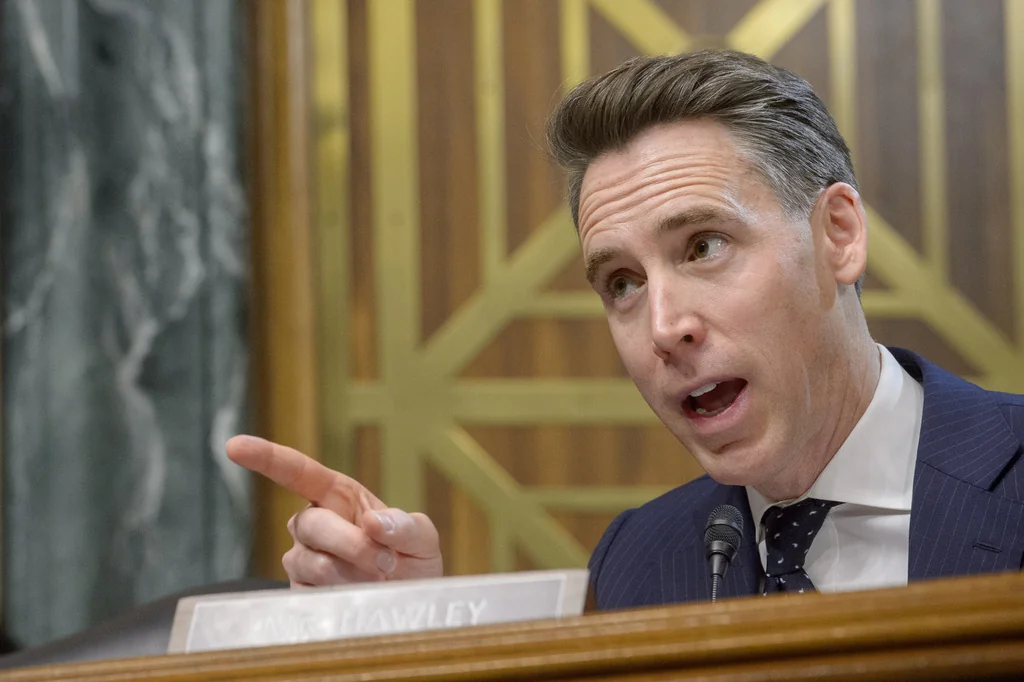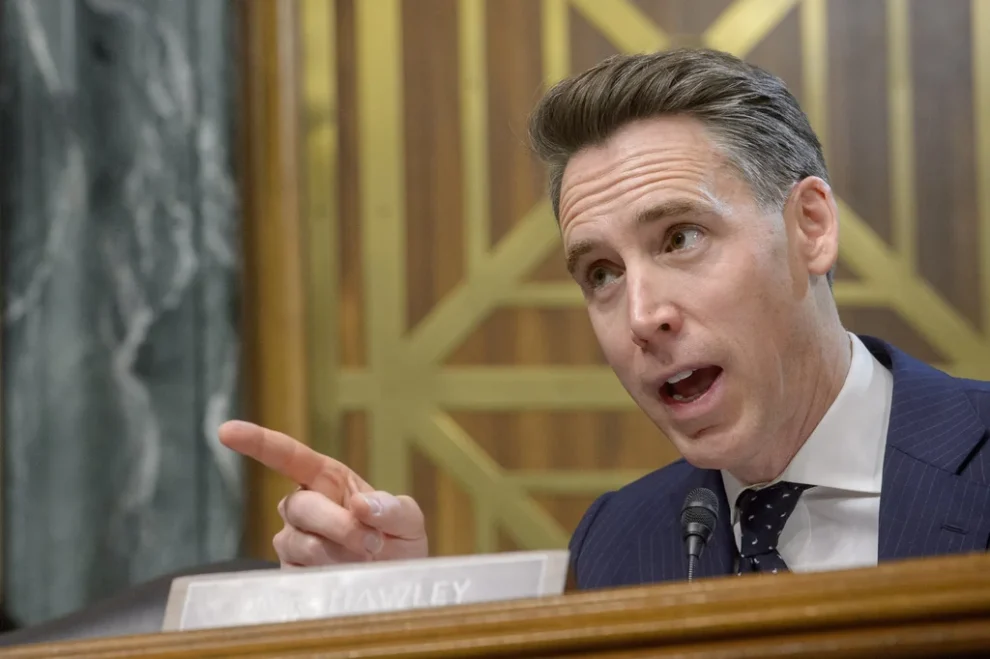The Senate’s loudest Republican defender of Medicaid is keeping his powder dry on the House GOP’s “big beautiful bill” to advance President Donald Trump’s agenda.
Sen. Josh Hawley (R-MO), whose support is crucial for a so-called budget reconciliation bill but is contingent on preserving Medicaid, wants to see what House Republicans can muster through their thin majority first.
“Let’s see what they actually pass,” Hawley told the Washington Examiner on Monday evening. “Let’s see what it actually comes out to, what the details are. I’m against anything that’s a cut.”
The proposal, which the House Energy and Commerce Committee will debate and possibly alter on Tuesday, includes $715 billion in cuts over the next decade to Medicaid and Obamacare. It’s a significantly pared-back version of initial proposals to slash Medicaid benefits alone by more than $800 billion. The current version amounts to a compromise between swing-district centrists opposed to steep reductions and conservative fiscal hawks wanting to use reductions to help offset Trump’s economic policies and tax cuts.
Still, the text includes de facto cuts that, if passed, would be set on a collision course with Hawley and other Senate Republicans seeking to safeguard the government-subsidized health insurance program that covers some 80 million poor adults and children.
Hawley described the “move away” from more drastic cuts previously floated by fiscal hawks as a positive sign. And he suggested stricter work requirements were acceptable. But the nonpartisan Congressional Budget Office’s early analysis that 8.6 million people could lose coverage because of the various changes appeared to give Hawley pause.
“My position on that is, I’m against cutting Medicaid benefits, and specifically Medicaid benefits in the state of Missouri. So let’s see where the House gets to on that,” he said.
The proposal includes work, education, or volunteer requirements of at least 80 hours per month for able-bodied beneficiaries; more frequent verification of income and residency eligibility; a freeze on an arrangement that allows states to boost federal Medicaid funding by taxing healthcare providers; and increasing co-payments by up to $35 for those above the federal poverty line.

Federal Medicaid spending has skyrocketed since the expansion of eligibility under former President Barack Obama’s Affordable Care Act. Total Medicaid spending was $333 billion in fiscal 2008, before Obama became president, and jumped to $860 billion by 2023. The federal share of the costs also increased from 60% to 72% in that time frame, according to analysis from the Paragon Health Institute.
Democrats lambasted policies that they said would “eviscerate” the program.
“Republicans promised for months that they would protect Medicaid,” Senate Minority Leader Chuck Schumer (D-NY) said. “But now Americans know the truth: Republicans never intended to keep that promise, and this confirms it.”
In a New York Times op-ed published Monday morning that appeared to be written in the days prior to the House GOP’s bill release, Hawley penned a scathing rebuke warning his party that Medicaid cuts would be “morally wrong and politically suicidal.”
“Republicans need to open their eyes: Our voters support social insurance programs. More than that, our voters depend on those programs,” Hawley wrote. “And there’s a reason for this that Republicans would do well to ponder. Our economy is increasingly unfriendly to working people and their families.”
With only three defectors to spare, Senate Republicans can’t afford to lose Hawley. Sen. Ron Johnson (R-WI) is opposed because he said the bill, which also deals with border security, taxes, and energy, failed to go far enough on spending cuts. Libertarian Sen. Rand Paul (R-KY), a deficit hawk, is an expected opponent. Sen. Mike Lee (R-UT) also conveyed hesitation.
HOUSE GOP ROLLS OUT MEDICAID PLAN COMPROMISE WITH STRICTER REQUIREMENTS
Centrist Republicans like Sens. Susan Collins (R-ME) and Lisa Murkowski (R-AK) are also vital to win over, both having offered similar cautions as Hawley not to gut Medicaid.
Collins told the Washington Examiner on Monday evening she’d yet to examine the legislation. Murkowski was optimistic about the changes involving how states tax healthcare providers because she said Alaska likely wouldn’t be affected.
The House Energy and Commerce Committee on Tuesday will hold its markup of the proposal, the first step to cementing the Medicaid changes into the “big beautiful bill” Congress seeks to complete by the Fourth of July.
























